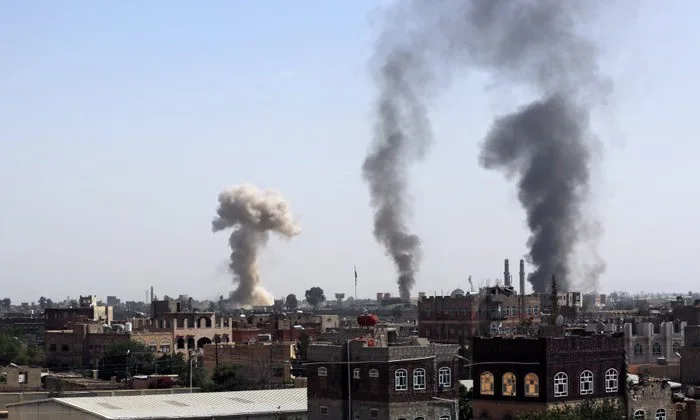In a significant policy shift, U.S. President Joe Biden has announced the cessation of American support for the Saudi-led military offensive in Yemen, a conflict that has fueled what the United Nations calls the world’s “largest humanitarian crisis.” The war, launched in 2015 to counter Houthi rebels, has resulted in over 233,000 deaths and affected 24 million people. Speaking at the State Department, Biden declared, “This war has to end,” describing it as a “humanitarian and strategic catastrophe.” The decision aligns with his campaign promise to prioritize diplomacy, democracy, and human rights.
Saudi-Led Coalition and U.S. Involvement
The Saudi intervention, dubbed “Renewal of Hope,” involves a coalition of Arab and Western nations, with the U.S. as the primary arms supplier. Between 2014 and 2018, Saudi Arabia spent $15.6 billion on weapons, with the U.S. contributing $11.5 billion, followed by the UK ($2.7 billion), France ($733 million), Spain ($391 million), and Germany ($298 million), according to the Stockholm International Peace Research Institute. Biden’s withdrawal of support marks a rebuke to Saudi Arabia, though he clarified that the U.S. would continue to “help Saudi Arabia defend its sovereignty and territorial integrity.” The Saudi press, focusing on this assurance, noted Riyadh’s “welcome” of U.S. commitment without addressing the Yemen policy shift.
Houthi Designation and Regional Reactions
On January 19, 2025, the Trump administration designated the Houthi movement, officially Ansarallah, as a terrorist organization. Days later, a Biden administration spokesperson announced a review of this decision, hinting at a potential reversal that could limit Saudi justifications for further military escalation. Meanwhile, Saudi Arabia responded to Biden’s announcement with gestures of goodwill, including the release of two Saudi-American detainees, Salah al-Haider and Bader al-Ibrahim, charged with terrorism-related crimes in 2019. The Saudi Press Agency, without mentioning Biden’s statement, reaffirmed support for a “comprehensive political solution” to the Yemen crisis, echoing U.S. calls for diplomacy.
International Arms and Accountability
The U.S. decision also casts a spotlight on other nations’ roles in the conflict. France, the third-largest arms supplier to Saudi Arabia, has faced scrutiny for its involvement. A 2018 report by the NGO Disclose, based on leaked French Military Intelligence documents, revealed that French-made Leclerc tanks and César howitzers contributed to civilian deaths in Yemen between 2016 and 2018. Public outcry led to a French parliamentary fact-finding mission on arms export controls, highlighting concerns over weapons “likely to be used illegally against civilians.”
Implications for Yemen and Beyond
Biden’s policy reversal, building on the Obama administration’s initial approval of the Saudi campaign and Trump’s increased arms sales, signals a renewed focus on addressing Yemen’s humanitarian crisis. With millions facing famine and displacement, the move pressures the Saudi-led coalition to seek a political resolution. As global attention turns to diplomacy, the international community watches closely to see if this shift can alleviate Yemen’s suffering and pave the way for lasting peace.






